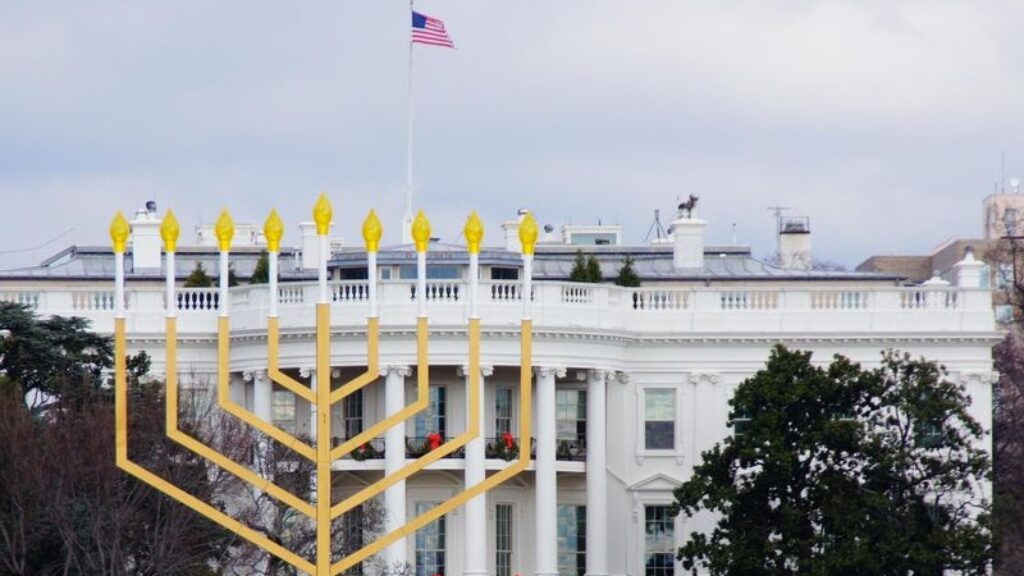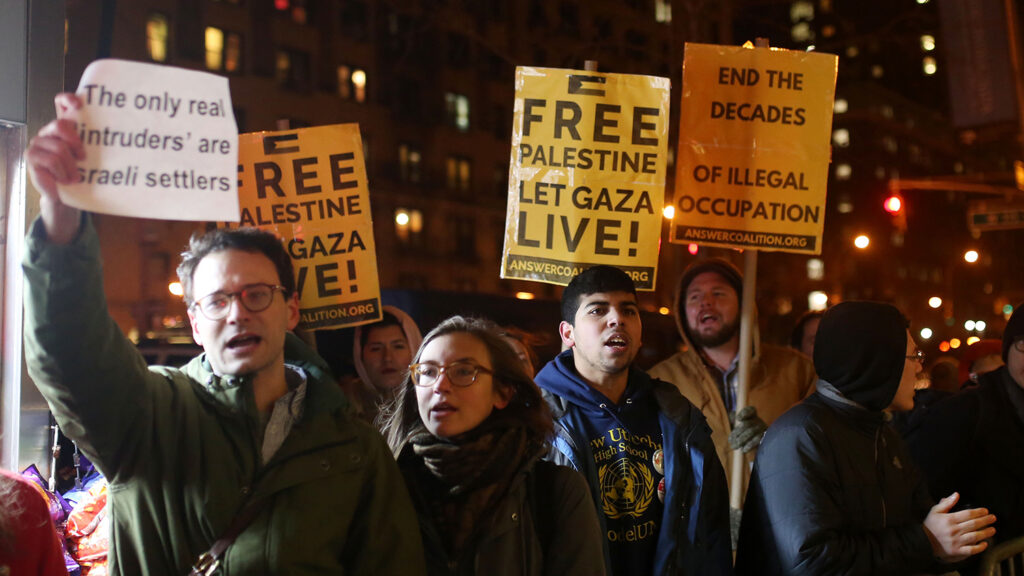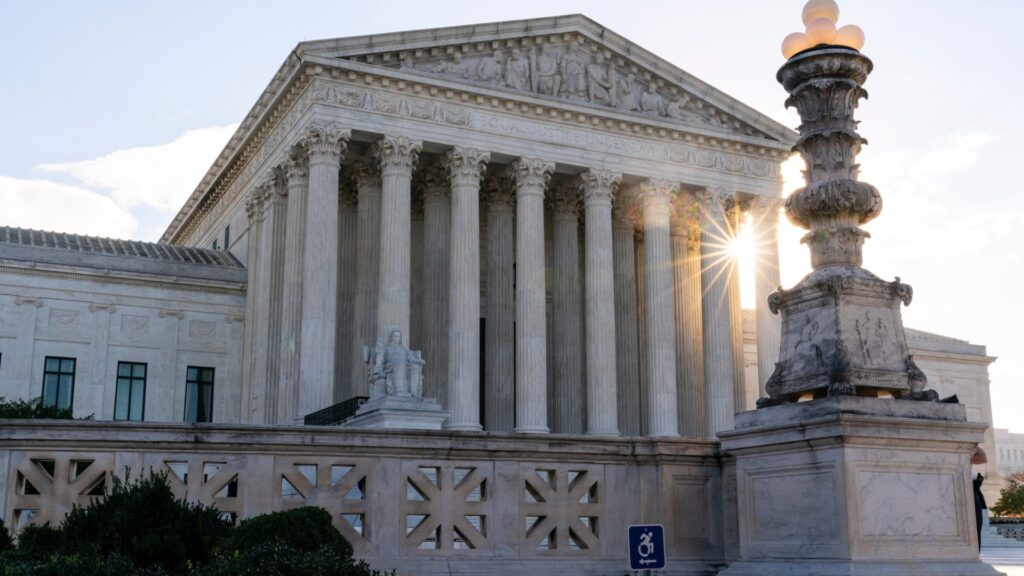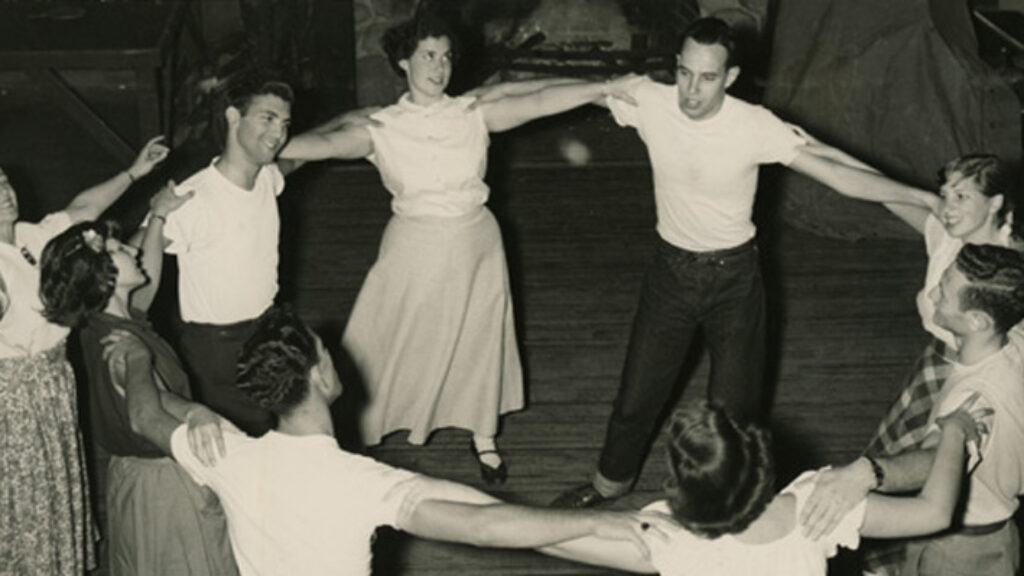My Real Internal Conflict is Not One of Clashing Interests
Ocean Timmins, Solomon Fellowship Class of 2024
When do my Jewish interests and American interests conflict? After much careful internal deliberation, I have concluded that they do not, and I believe that this is for a few reasons. I live in New York City, which is home to more Jews than any other city in the world. This has shaped my understanding of the Jewish people and their place in America. The United States allows its citizens to be whoever they want to be and to worship how they choose, thus supporting all of its Jews, religious or not. I still have fears about the Jewish future, but a clash between my Jewish and American interests is not a cause of those fears.
In my borough of Brooklyn, one in four people is Jewish and, by some estimates, there are more Jews here than in Jerusalem! There is no time of the year that better demonstrates this massive population and its imprint on local culture than during Hanukkah, and certainly not because Hanukkah is the most important Jewish holiday. Almost everywhere else in the Western world, this time of year is completely occupied with the all-encompassing Christmas; Brooklyn, however, withstands the Christmas frenzy and adds some Hanukkah crazy. Even when Christmas is approaching, the park a block from my house is holding a candle lighting party with sufganiyot and latkes, menorahs are in windows, Mitzvah Tanks are driving around, and Lubavitch kids are handing out Hanukkah candles.
Throughout the rest of the year, there are also constant reminders of the Jewish presence in New York City. Public schools get Rosh Hashanah, Yom Kippur, and the first two days of Passover off; there are Jewish delis all over the city and mezuzahs are often found in doorways of homes and businesses alike. From Upper West Side “bagel Jews” to Crown Heights ultra-Orthodox, and from Park Slope liberals to Staten Island conservatives, there is a home for everyone, and every Jew, in New York. New Yorkers are so immersed in Jewish culture that Yiddishisms have become part of local slang, like schmear on your bagel, schvitz on the subway, and schlep across town. We have become a cornerstone of this city and its values.
In my life as a traditional Jew who is immersed in Jewish culture and practice and invested in the Jewish future, I have not encountered any conflicts between my Jewish interests and American interests. One of the greatest parts of the American ethos is that it values personal identity and accepts everyone. Post-Second Temple Judaism is so adaptive and can fit in nearly anywhere. There is a reason that Jews are all over the world; every time we are forced out of one place, we move to the next, adjusting to our new surroundings but never giving up who we are. Although we made it work wherever we found ourselves in the diaspora, it is New York City that became the launching pad for generations of flourishing Jewish communities and schools and the perpetuation of Jewish culture.
In my mind, there is an underlying Jewish fear of being too accepted into any society. It is a fear of becoming attached to a place knowing that so many times in the past, our once secure positions became threatened; the fear of thinking of myself as American just as my relatives before me thought of themselves as Russian and Austrian. My great-grandfather was from Vienna. He fought in World War I, was a decorated soldier, and could not imagine his entire country turning on him. I am so appreciative of the freedom and acceptance of the United States, but we Jews have had to pack up and leave over and over again since the Exodus from Egypt. Why should we believe that this time is any different? In the book The Golden Age by Joan London, the main character, after leaving Budapest and finding a safe haven in Perth, Australia, states that “he had a suspicion that never again would he feel at home as he once had. Never again on this earth. And another suspicion: that to love a place, to imagine yourself belonging to it, was a lie, a fiction. It was a vanity. Especially for a Jew.”
Conversely, this is a country devoted to freedom and equality, with freedom of religion enshrined as a first right in the Constitution. This time may truly be different because we are in a modern age in a country that values individualism and pluralism, a country that my great-grandparents could not even have dreamed of existing. You could be cynical in a country like France, where religion is seen as something to be kept to oneself, but this is America, striving to be the land of the free and the home of the brave. Pursuit of perfection cannot be the enemy of greatness. I cannot live my life in anticipation of the bad, so I must live in the present. This is my internal conflict. The struggle is not between my American and Jewish interests, but rather it is between the ideals of this country—which have held for nearly 250 years—and Jewish history’s tendency to repeat itself.
Mr. Ocean Timmins is a homeschooled junior residing in Brooklyn, New York.
Suggested Reading

Approaching Israel as American Jews, or Jewish Americans
The fulfillment of the Jewish dream has made the question of whether to prioritize our Jewish identity or that of our country of birth more complex.

Regaining our Power Through Knowledge: The Solution to Rising Anti-Semitism on Campus
An emotional connection to our Judaism cannot be our only solace. Knowledge is the solution to the problem Jewish students face today.

The Dangerous Descent of American Free Speech
Decisive action must be taken in the fight against individual liberties - the future of the American experiment our Founders fought to preserve is at stake.

What It Means To Be Jewish
If the future of American Jewry is to be composed of, as Milton Himmelfarb put it, "fewer but better Jews", then what does it mean today to be Jewish? And what makes a "better Jew"?